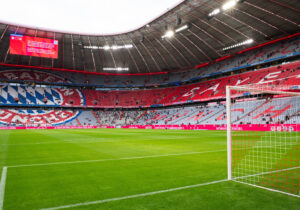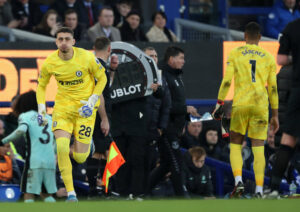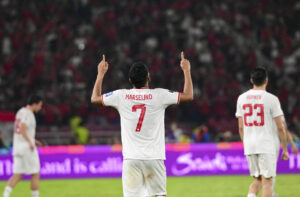As COVID-19 rages on, elite football continues without its fans in stadia, and as a result those memorable European nights in the Champions League are in danger of becoming forgettable.
Champions League Losing Its Special Appeal Without Fans in Stadia
Champions League also following Compressed Schedule
The Bleacher Report tweeted an animated photo with the caption ‘Champions League week’; it was to signify another round of UEFA Champions League matches as Matchday Three of the 2020/21 group stage.
For the third week in a row, Champions League football is being played. Worse, football is being played mostly without fans, the Premier League in England is doing its bit to bleed its fans dry, and weird results keep happening. The schedule has been unprecedented, and the Champions League started in late October this season.
Too Much?
This season’s Champions League kicked off in October, rather than September. Qualifying games were mostly one-legged, as the football calendar was compressed.
Add to this the fact that it all began less than 60 days after the 2019/20 tournament ended.
Does it start to feel too much?
There is a sense that football is – not so much stretching itself thin, but rather overfeeding and constipating its audience. And all this would be more palatable if fans were being served the great delicacy of being back in the grounds and creating atmospheres, instead of the increasingly bland taste of mostly watching from home.
Champions League and Novelty
One of the allures of the Champions League is its rarity. The competition usually lasts nine months, but unlike the leagues, it’s not week-in-week-out. Especially when it was just the European Cup, and was a knockout format, the novelty was there. Not only were games quite far between, but match-ups were far from frequent, meaning when Bayern Munich met Juventus or Celtic met Manchester United, it was very much a special occasion.
Yet, as the competition has become a shadow of itself, with group stages and seedings that scream ‘institutionalised cheating’, there’s still some form of uniqueness. Yes, Bayern Munich and Real Madrid have played each other eight times in six years. Napoli and Liverpool have frequent meetings. Manchester City and Shakhtar Donetsk almost seem contractually obliged to play each other. But there’s still a sense of occasion when these meetings happen, as they occur – at best – in fortnights.
But games following games on a weekly basis waters down any sense of freshness these days. Add the absence of fans in stadiums and the dour feeling of games. Suddenly the Champions League feels like an over-chewed gum than an occasion to savour. Or rather, for many already put off by it, it feels more dour.
How Long Will It Last?
The Champions League ambles on. Like the rest of football, it does so not as a spectacle, but more of a necessity to keep the product alive for when it has to become a spectacle. The big difference is domestic leagues have a history of always being in our faces. Now, in the Champions League, with its excess churn and eerie atmosphere, fixtures like Lazio v Borussia Dortmund are just not the same.
If over the past few years fans have been served glimpses into a what potential European Super League might like, this seems like another sneak peek.
Main Photo






